The Office of Public Affairs (OPA), in partnership with Unilab, held the 6th installment of the Media Leadership Lecture Series on November 28, 2023, at the Dr. Robert Sy Grand Ballroom, Bl. Buenaventura G. Paredes, O.P. Building. With the theme “Advancing Community Wellness through a Multidisciplinary Approach to Health Communication: A Philippine Perspective”, this lecture series gathered experts, practitioners, media personalities, and advocates to weave and to share their insights on wellness and communication through a multi-sectoral approach.
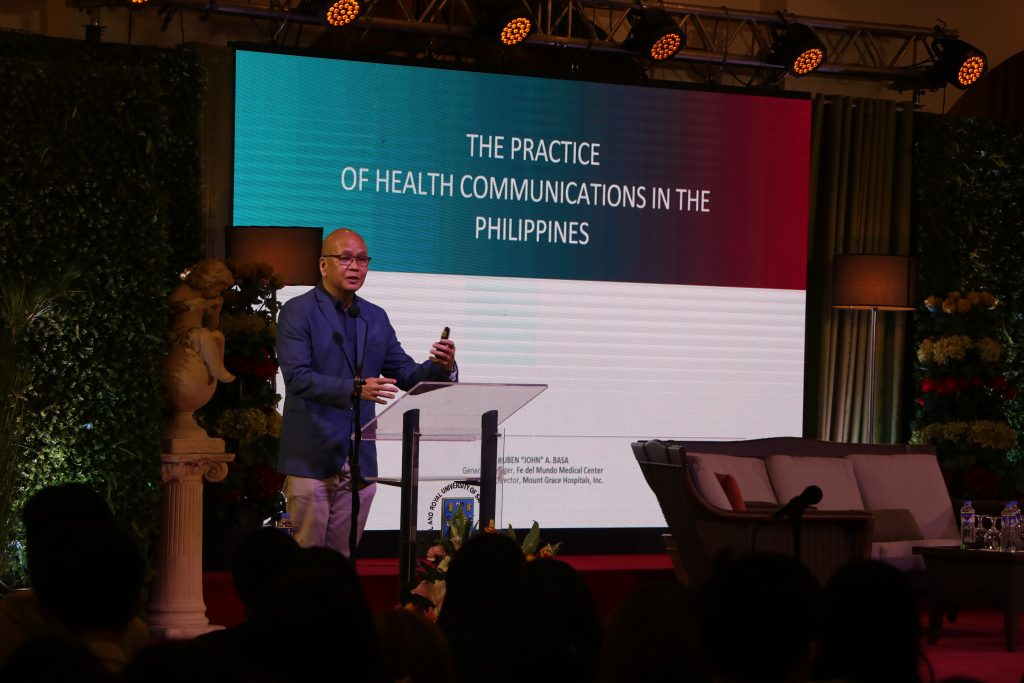
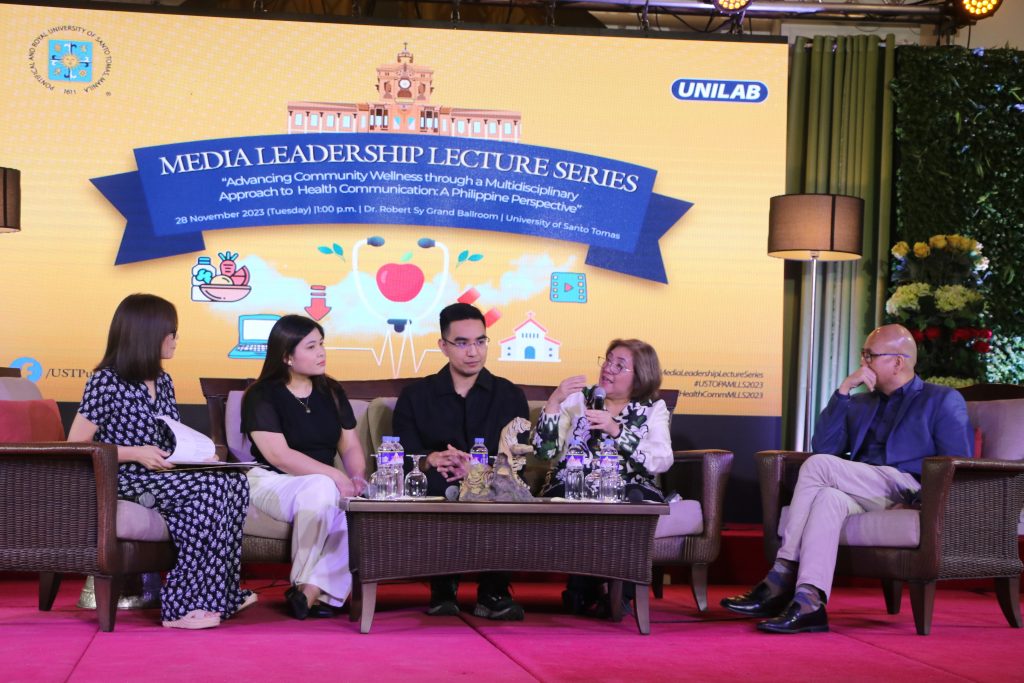
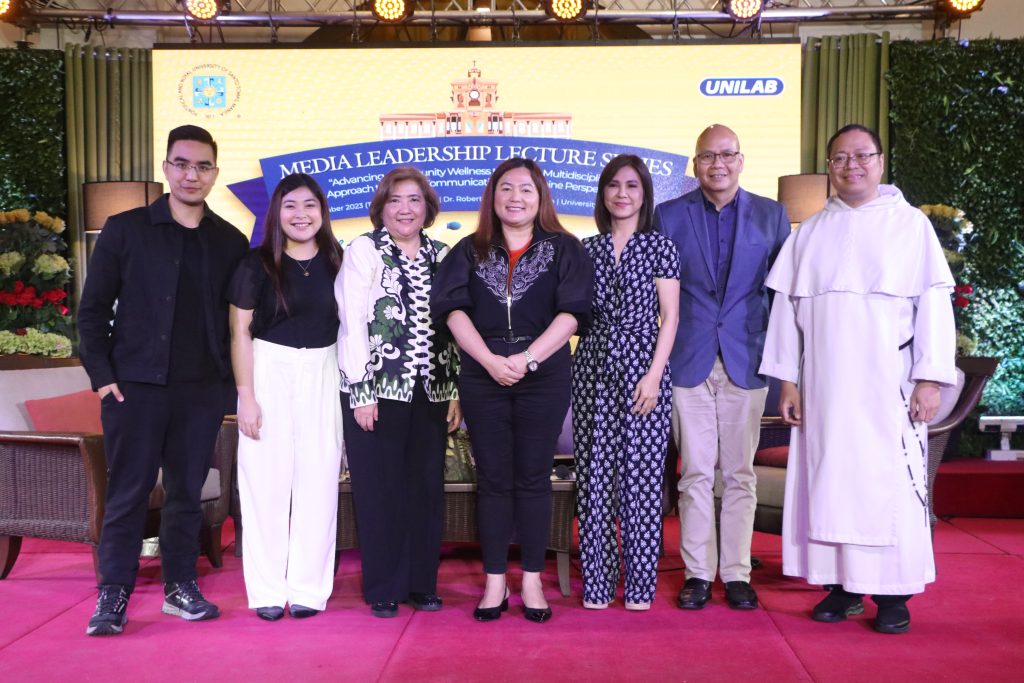
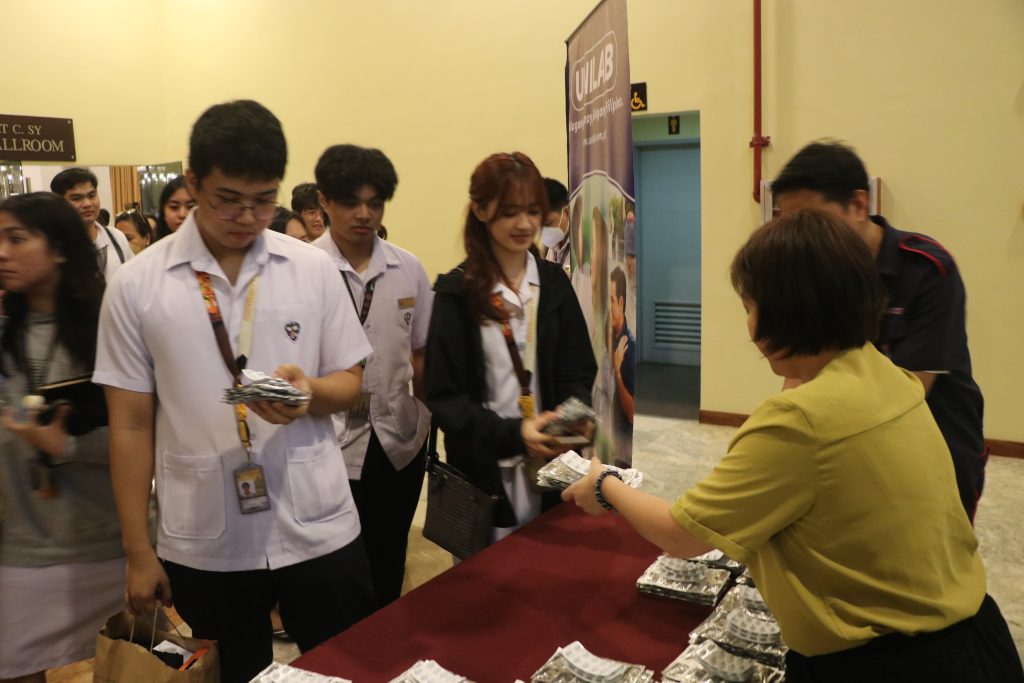
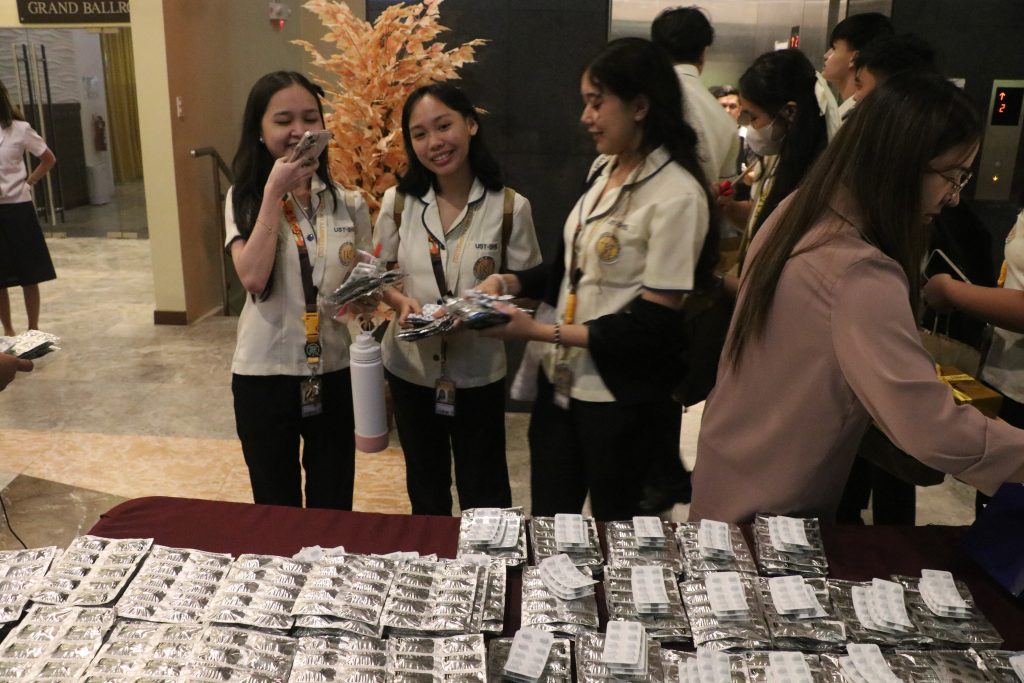
Mr. Ruben Basa,Operations Director of Mount Grace Network of Hospitals and General Manager of Fe del Mundo Medical Center (FDMMC) served as the keynote lecturer on “The Practice of Health Communication in the Philippines”.
A key challenge in health communication, shared Mr. Basa, was improving health literacy or the ability to access, understand, appraise, and apply health information in the aspects of health care, disease prevention, and health promotion. An effective communication campaign through mass media, such as the Oplan Alis Disease, improved vaccination coverage in urban areas during the early 90s until 2012, when vaccine rates declined in the next four years. In the absence of consistent health communication campaigns, vaccine hesitancy rose until 2022, where Basa lamented that the Philippines became one of the countries with the highest number of “zero-dose children” or children with no vaccine doses at all.
Basa also stressed the importance of being ready to communicate change transparently to avoid building distrust. Science evolves, evidence changes, and health communicators must adapt as needed, particularly while dealing with an ongoing pandemic like COVID-19, which still has new strains spreading throughout communities. He added that maintaining public trust and having reliable messengers are vital.
A panel discussion moderated by veteran journalist Ms. Jing Castañeda followed the lecture, with insights gathered from Mr. Basa; Prof. Consuelo G. Suarez, MD, PhD, FPARM, Supervisor of Research Center for the Health Sciences; Ms. Kristine Bernadette Sasi, Executive Producer of MedTalk HealthTalk – CNN Philippines; Mr. Winston Creones “Dr. Kilimanguru” Tiwaquen, Medical Doctor and Educational Content Creator; and Ms. Jing Castaneda, Journalist, Columnist, and Health Advocate. Their discussion focused on “Advancing Community Wellness through a Multidisciplinary Approach to Health Promotion”.
Prof. Suarez highlighted the need to stay updated on the latest research publications on medical theory and practices to be sure that what health care practitioners responsibly communicate to their patients and the public is still up to the experts’ standards. She also suggested that social media could be used to promote new, life-saving techniques and technologies.
Ms. Sasi pointed out that, aside from a lack of understanding of some important health concepts, some topics also bear heavy stigma, like depression and other mental health related topics. Repeated awareness and communication attempts on wide-spread platforms, such as MedTalk HealthTalk, with trusted experts who can reliably communicate on the said topics, are the key to slowly changing preconceived notions of the public. Aside from long-form content like full episodes, which are all available online, they also have short-form content that are one or two minutes long to focus on specific topics.
Dr. Tiwaquen, meanwhile, stressed the need to retain one’s ethical values as a doctor, particularly since his wide online reach as an educational content creator on social media leads to some advertising offers on unproven supplements and skin treatments. He said the rare times he accepts advertising deals, he ensures that it aligns with his values to keep his credibility, which is of prime importance as a communicator.
Another topic discussed was the lack of localization and translation of medical terms and instructions, which healthcare practitioners usually communicate in English or Tagalog. More effort should be put into using local terms that the public would most understand, particularly those in far-flung barrios.
This installment of the UST Media Leadership Lecture Series enhanced the understanding of the audience on the holistic concept of health communication and its value and relevance in the Philippine setting, increased the awareness of the participants on the various approaches and practices used by individuals and organizations to effectively implement different types of wellness programs in their respective communities through various media platforms, and encouraged the audience to initiate projects that are creative, laymanized, and multisectoral in approach for the application and appreciation of the members of the Thomasian Community and general public.
Originally launched in 2017, the keynote speakers in the previous six installments of the UST-MLLS included Philippine Institute for Development Studies Research Information Department Director Dr. Sheila Siar, Philippine Communication Society Director/PRO and UST Journalism Program Coordinator Mr. Felipe Salvosa II, Roman Catholic Archdiocese of Manila Office of Communications Director Fr. Roy Bellen, multidisciplinary journalist and documentarist Mr. Atom Araullo, Limitless Lab Chief Executive Officer Ms. Joie Cruz, and Break the Fake Movement Founder Mr. Gabriel Billones, Jr., Catholic Media Network President Fr. Francis Lucas, Lahi Philippines President Jing Magsaysay, former ABSCBN Digital News Media Head Ms. Karen Puno-Igaya, and GMA documentary hosts Mr. Cesar Apolinario and Mr. Jay Taruc.




